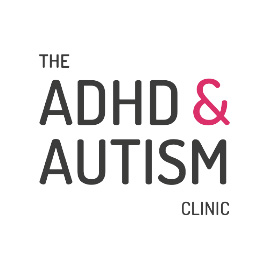Autism communication tips can come in handy. Communication is one of the biggest Autism spectrum social challenges. Non-verbal communication in autism can improve through effective autism social skills development. Navigating the world of Autism can be a challenge, but effective Autism communication strategies can make all the difference for Autistic people at home, school and work.
Introduction
As a lifelong developmental disability, Autism can lead to social anxiety, isolation and in some extreme cases, bullying and communication can have a huge impact on how Autistic people navigate the world.
In this blog post, we talk about Autism spectrum communication techniques and the importance of Autism social skills development. Being able to communicate effectively helps families, friends and workplaces make building relationships easier for the 700,000 autistic adults and children in the UK.
Autism spectrum social challenges
Autism social skills development might be difficult for people with Autism, despite their desire to build meaningful friendships. Socialising with friends can feel overwhelming, particularly at school. They can often feel isolated, as G Sabini-Roberts explains when reflecting on their primary school days in this blog.
Often, autistic people become highly passionate about a particular hobby or subject. This can be a great way for them to bond with like-minded people who share the same interest, but it can be overbearing for people who don’t feel the same way.
Non-verbal communication in autism may be difficult and Autistic people may struggle to:
- Read social cues such as facial expression and body language
- Understand somebody else’s perspective
- Give eye contact and be expressive when communicating
People with Autism often experience sensory overload, such as excessive noise, bright lights or strong smells. You can find out more about sensory processing in autism strategies in our recent blog.
Enhancing communication in Autism
A 2016 study by St Thomas and St Guy’s NHS Foundation Trust found that early intervention for children with Autism had a huge impact on their Autism spectrum social challenges six years later. Throughout the study, participants were successful in enhancing communication in Autism and found their repetitive behaviours had decreased.
Autism and speech therapy
Autism social skills development is enhanced when Autism is diagnosed early and people are then referred for therapy. Speech and Language therapy is a very effective Autism therapy for social skills and can help with non-verbal communication in autism too.
Speech and Language Therapy is a powerful method of enhancing communication in Autism and people can benefit from:
- Improved attention and listening skills
- More motivation to communicate
- Greater understanding of language, especially in social situations
- Better conversational skills
Speech and language therapy can also help the adults to communicate with the child better, such as parents or carers, family members and teachers. Making a few simple changes allows them to develop Autism spectrum communication techniques which makes it easier for the Autistic person to feel comfortable communicating at home, school and socially.
Research carried out by Autism Parenting Magazine suggests that 65% of pre-school aged children with autism learn to communicate and pick up more language skills if they start therapy early.
Autism communication tips: Building Empathy and Understanding
Autism social skills development is something that many Autistic people can lack, which means they struggle to recognise and label emotions and respond to social cues. For example, they might not be able to offer sympathy in response to someone’s distress and instead offer a logical solution because they haven’t developed empathy.
However, Clinical research suggests that many Autistic people talk about feeling excessive empathy, but their communication style perhaps does not show this.
One effective Autism therapy for social skills is Cognitive Empathy, which can help autistic people to learn more empathetic behaviour. Exposure to social situations and building relationships with peers is very important for building empathy in Autistic people.
Autism Communication Tips
Creating the optimal environment for a child or adult with Autism is key to helping them thrive and enhancing communication in autism.
The education system is obliged to make reasonable adjustments to minimise Autism spectrum social challenges. This article from the National Autistic Society talks about sensory adaptations that will make school more comfortable for Autistic children. Schools have a duty to ensure that pupils with a disability (Autism is considered a disability) are not placed at a substantial disadvantage compared to non-disabled pupils.
For adults, we talk about the Autism communication tips for adults in the workplace in this blog post: Thriving in the Workplace. It includes some great ways to develop Autism spectrum communication techniques so that Autistic people can achieve career success and build up good social and working relationships with colleagues.
Enhancing Communication in Autism
The importance of early intervention for Autism social skills development can be seen through this story about Eben, a boy with Autism from London.
Eben’s mother was referred for Autism and speech therapy when Eben struggled to communicate when he was three.
Eben’s mother was observed as she played with him and the therapist’s suggestions to hold back encouraged Eben to initiate playful activities. By implementing the recommended Autism spectrum communication techniques, Eben’s eye contact started to improve. Playing at his own pace allowed him to engage more with both his parents, which in turn improved his speech.
Several years later, Eben is doing well in mainstream school While social situations remain hard for him, the skills that he and his parents learned as a result of the Autism therapy for social skills means he is able to engage with his peers and teachers in school.
Conclusion
Early intervention for people with Autism plays a huge role in helping them to achieve in both school and throughout their working life. Autism social skills development from a qualified therapist, such as speech and language therapist, can help to improve Autism spectrum communication techniques.
Support from parents and carers, school and the workplace all help to manage any sensory overload, fostering positive communication, enhancing relationships and helping an Autistic person to thrive.
The first step towards navigating the world of Autism is a diagnosis.
The ADHD & Autism clinic offers specialised autism and ADHD support when enhancing communication in autism. Find out more about our expert guidance and tailored therapy by visiting the ADHD & AUTISM CLINIC.

